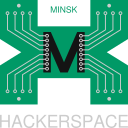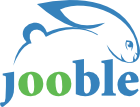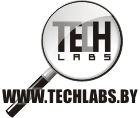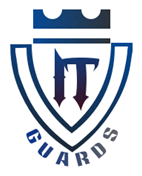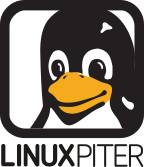Winter session of 10th International conference of developers and users of free / open source software “Linux Vacation / Eastern Europe” (Minsk, February 14-16, 2014)
| |
|
|
|
|
| |
|
|
|
|
| |
abstracts |
author |
view |
download |
| |
|
|
|
|
| |
|
|
|
|
 |
Удобства и особенности OpenBSD Ports |
Vadim Zhukov
 Moscow, Russia Moscow, Russia |
|
slides |
| |
|
|
|
|
| |
|
|
|
|
 |
Операционная система Linux как основа для построения высокопроизводительных систем хранения данных |
Александр Фахрутдинов
 Сызрань, Russia Сызрань, Russia |
|
|
| |
|
|
|
|
| |
|
|
|
|
 |
Steganography – coding and intercepting the information from encoded pictures in the absence of any initial information |
Monika Kwiatkowska,
Łukasz Świerczewski,
 Lublin, Poland, Lublin, Poland,
 Łomża, Poland Łomża, Poland |
|
slides |
| |
|
|
|
|
| |
|
|
|
|
 |
BOINC — Not only calculations |
Łukasz Świerczewski,
 Łomża, Poland Łomża, Poland |
|
slides |
| |
|
|
|
|
| |
|
|
|
|
 |
Краткий обзор базовых лицензий СПО |
Irina Shubina
 Minsk, Belarus Minsk, Belarus |
|
slides |
| |
|
|
|
|
| |
|
|
|
|
 |
Кандалы прогресса: авторское право и научные публикации |
Антон Літвіненка
 Кіеў, Ukraine Кіеў, Ukraine |
|
slides |
| |
|
|
|
|
| |
|
|
|
|
 |
Как пропатчить KDE4 под OpenBSD |
Vadim Zhukov
 Moscow, Russia Moscow, Russia |
|
slides |
| |
|
|
|
|
| |
|
|
|
|
 |
Raspberry Pi Tank |
Павел Бондарь
 Minsk, Belarus Minsk, Belarus |
|
|
| |
|
|
|
|
| |
|
|
|
|
 |
Обзор реализаций поддержки мультиархитектур в дистрибутивах Linux и их сборочных системах |
Kanstantsin Shautsou
 Minsk, Belarus Minsk, Belarus |
|
|
| |
|
|
|
|
| |
|
|
|
|
 |
SDN сегодня |
Dmitry Orekhov
 Minsk, Belarus Minsk, Belarus |
|
slides |
| |
|
|
|
|
| |
|
|
|
|
 |
Свободное программное обеспечение на службе у психолога |
Олег Кондрашов, Алексей Городилов, Александра Кононова
 Москва, Russia Москва, Russia |
|
slides |
| |
|
|
|
|
| |
|
|
|
|
 |
Обзор GNURadio |
Юрий Адамов
 Minsk, Belarus Minsk, Belarus |
|
|
| |
|
|
|
|
| |
|
|
|
|
 |
Обзор свободного фреймворка ROS – операционной системы для роботов |
Валерий Касьяник
 Брест, Belarus Брест, Belarus |
|
slides |
| |
|
|
|
|
| |
|
|
|
|
 |
Building the virtualisation-based visual timeline of GUI evolution |
Dmitriy Kostiuk
 Брест, Belarus Брест, Belarus |
|
|
| |
|
|
|
|
| |
|
|
|
|
 |
clsync – live sync utility |
Dmitry Okunev
 Moscow, Russia Moscow, Russia |
|
slides |
| |
|
|
|
|
| |
|
|
|
|
 |
Опыты над людьми и Octave: FOSS-based GSR measurements |
Ольга Карабутова
 Minsk, Belarus Minsk, Belarus |
|
slides |
| |
|
|
|
|
| |
|
|
|
|
 |
Обзор UEFI SecureBoot |
Michael Shigorin
 Kiev, Ukraine Kiev, Ukraine |
|
|
| |
|
|
|
|
| |
|
|
|
|
| title |
author |
view |
download |
| |
|
|
|
| |
|
|
|
| День открытых данных в Минске (анонс) |
Галина Балашкова
 Minsk, Belarus Minsk, Belarus |
|
slides |
| |
|
|
|
| |
|
|
|
| Проблемы распознавания лиц в OpenCV :) |
Dmitriy Kostiuk
 Belarus, Brest Belarus, Brest |
|
slides |
| |
|
|
|
| |
|
|
|
| Iptables tricks: native fail2ban |
Andrew Savchenko
 Moscow, Russia Moscow, Russia |
|
slides |
| |
|
|
|
| |
|
|
|
| Linux-образование. LLPD Epam |
Денис Пынькин, Юрий Адамов
 Minsk, Belarus Minsk, Belarus |
|
slides |
| |
|
|
|
| |
|
|
|
 Минск, Belarus
Минск, Belarus  Minsk, Belarus
Minsk, Belarus  Belarus, Brest
Belarus, Brest  Moscow, Russia
Moscow, Russia  Minsk, Belarus
Minsk, Belarus 
 Lublin, Poland,
Lublin, Poland,  Кіеў, Ukraine
Кіеў, Ukraine 













